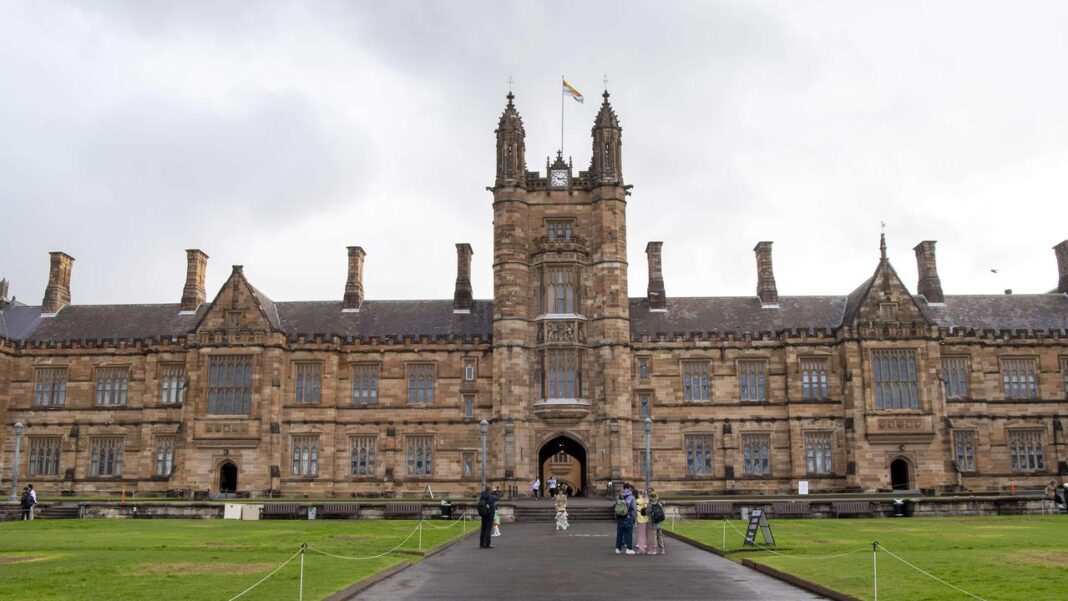By Dr. Majid Khan
MELBOURNE, Australia (London Post) – The Australian government announced its plan to implement restrictions on the influx of international students as part of efforts to ease housing pressures and control immigration levels. Canberra has expressed concerns that international education programs, which attract foreign students to study in Australia, have been vulnerable to immigration and visa fraud.
Official data from 2023 reveals that Australia hosted 787,000 international students, surpassing pre-pandemic levels. Australian government aims to cap the number of overseas students to relieve strain on rental accommodations and regulate immigration flows.|TURKISH|
In December 2023, Prime Minister Anthony Albanese said “Australia’s migration numbers needed to be wound back to a “sustainable level,” adding that “the system is broken”. Senior government officials have outlined that limiting international education enrollments will form part of a broader strategy to manage migration, enhance housing availability, and address skills shortages in the economy.
On July 2, 2024, the government went a step further, more than doubling the cost of the international student visa application fee to $1,600 in a move the International Education Association of Australia called the sector’s “death by a thousand cuts”.
Australia’s decision has sparked debate and concern over its implications for universities, businesses, and aspiring students worldwide. Apparently aimed at alleviating housing shortages exacerbated by an influx of overseas students, the policy shift has raised broader questions about Australia’s economic strategy, educational competitiveness, and its commitment to global cooperation.

Australia has long been a favored destination for international students, renowned for its high-quality education and multicultural environment. The influx of international students has not only enriched the academic landscape but also significantly contributed to the economy.
Tuition fees paid by international students, often higher than those paid by domestic counterparts, have become a vital revenue stream for universities and colleges. These funds support various aspects of institutional development, including research, infrastructure, and scholarships, thus bolstering Australia’s educational standing globally.
Meanwhile, the admission and student fee remain in the treasury of the Australian government, and in many cases, the visas had been delayed and cancelled. The students are of the view that the amount paid has not been returned, ranging from months to a year.
The government’s decision to halve the quota of international students has sent shock waves through the higher education sector. Already reeling from the impacts of the COVID-19 pandemic, which disrupted international travel and student enrollments, universities and colleges now face a substantial financial blow. The sudden reduction in student numbers threatens to undermine the financial stability of institutions that rely heavily on international student fees to sustain their operations and growth.
The repercussions extend beyond educational institutions to small businesses that have flourished around campuses, catering to the needs and preferences of international students. These businesses, often owned and operated by immigrants themselves, have thrived on the steady influx of students and their spending power.
Car renting business owner, Ahmed Hanjra, shared to London Post that due to cut on international students, we are experiencing negative impact on our business as their business is widely dealing with international students. Director of Leads Education Consultant, Muhammad Imtinan Ali Virk, expresses that the government decision is backlash and disappointment for the hundreds of thousands of students worldwide. As an education consultant, we are also experiencing negative impact to our business.
From accommodation providers and cafes to bookstores and specialized services, these enterprises face an uncertain future with the anticipated decline in student numbers, jeopardizing jobs and economic vitality in local communities.
Policymakers argue that reducing student numbers will alleviate some of this pressure on housing supply, potentially stabilizing rental markets and improving affordability for Australian citizens.
Critics, however, argue that slashing international student quotas is a short-sighted approach to addressing housing issues. They emphasize that Australia’s education sector benefits not only economically but also culturally and academically from the presence of international students. Beyond financial contributions, these students bring diverse perspectives, enriching the educational experience for all students and fostering global connections that are increasingly crucial in an interconnected world.
Moreover, the decision has had a profound personal impact on thousands of aspiring students worldwide who had set their sights on studying in Australia. Many had meticulously planned and invested significant resources in pursuing their educational dreams, only to have their plans disrupted by the sudden policy shift. This uncertainty has left them disillusioned and uncertain about their future educational and career paths, prompting some to reconsider their options altogether.
In response to mounting pressure from various stakeholders including educational institutions, businesses, and advocacy groups; the government faces calls to reconsider and revise its decision. Critics argue for alternative solutions that address housing issues without jeopardizing Australia’s reputation as a welcoming and competitive destination for international students.
Suggestions include increasing investment in affordable housing, implementing targeted policies to manage student accommodation, and fostering partnerships between universities and local communities to mitigate housing impacts.
The debate over international student quotas underscores broader questions about Australia’s role as a global education hub and its commitment to international cooperation and exchange.
Australia risks losing its competitive edge if perceived as unwelcoming or unpredictable in its policies toward international students, potentially impacting its attractiveness as a destination for global talent.
As stakeholders await further developments and potential revisions to the government’s policy, the outcome will significantly influence the trajectory of Australia’s education sector and broader economic fabric.
The world watches closely, mindful of the implications for global mobility, educational opportunities, and Australia’s positioning in an interconnected global economy. The decisions made in the coming months will not only shape the immediate future of international education in Australia but also reverberate across sectors and societies, shaping perceptions of Australia’s openness and commitment to global engagement.
INPS Japan/London Post
This article is produced to you by London Post, in collaboration with INPS Japan and Soka Gakkai International, in consultative status with UN ECOSOC.


